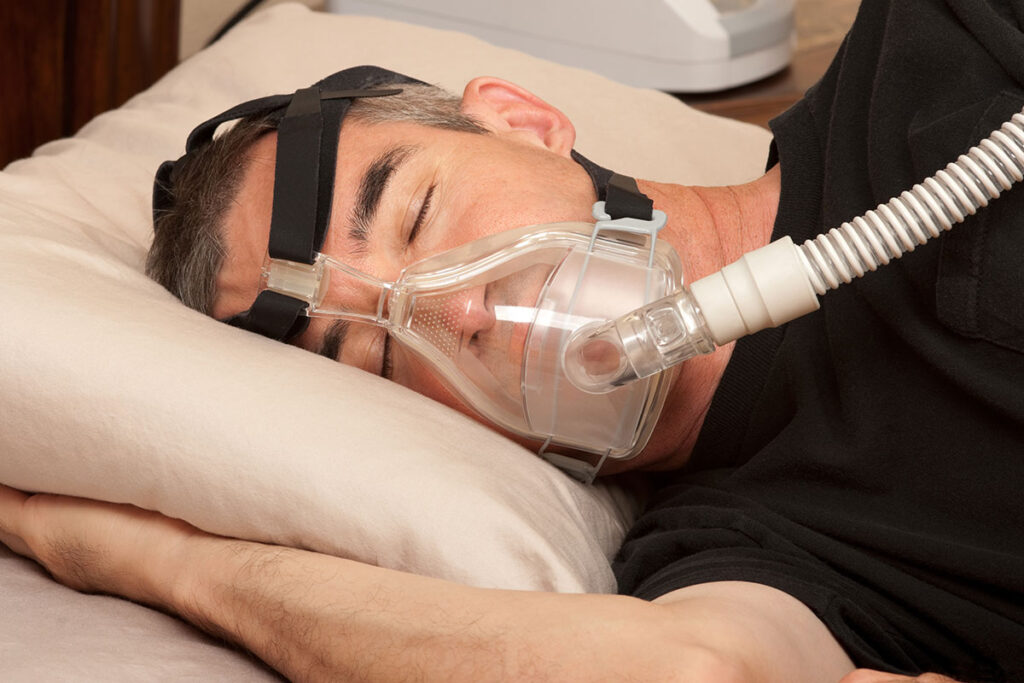Sleep apnea is a serious sleep disorder that occurs when a person’s breathing is interrupted during sleep. Not only can it lead to a restless night, but it can also have significant health consequences. Finding the right sleep specialist is crucial for diagnosis and treatment, and this article will guide you through understanding sleep apnea, the importance of testing, how to locate specialists near you, and more.
Understanding Sleep Apnea
Sleep apnea affects millions of people worldwide. It is characterized by pauses in breathing or shallow breaths during sleep that can last for a few seconds to minutes. This often results in fragmented sleep and reduces the quality of rest one receives nightly. The condition can occur at any age, but it is particularly prevalent among older adults and those who are overweight. Notably, sleep apnea can also lead to a range of other complications, making it crucial for individuals to recognize its signs and seek appropriate treatment.
When it comes to treatment, finding a qualified sleep apnea test near me is crucial. This professional can provide a comprehensive evaluation and recommend treatment tailored to your needs. Sleep specialists are trained to diagnose and treat a variety of sleep disorders, including insomnia, sleep apnea, restless leg syndrome, and narcolepsy. Their expertise can significantly improve your quality of life, as sleep plays an essential role in overall health and well-being.
Symptoms and Risks of Sleep Apnea
The symptoms of sleep apnea can vary, but common indicators include:
- Loud snoring
- Choking or gasping during sleep
- Excessive daytime sleepiness
- Difficulty concentrating
- Morning headaches
If left untreated, sleep apnea can increase the risk of several health issues, including:
- Cardiovascular problems such as high blood pressure
- Type 2 diabetes
- Metabolic syndrome
- Chronic liver problems
- Complications with medications and surgery
Moreover, the impact of sleep apnea extends beyond physical health; it can also affect mental well-being. Individuals may experience mood swings, anxiety, or depression due to the chronic fatigue and disrupted sleep patterns associated with the disorder. This can create a vicious cycle, as poor mental health can exacerbate sleep issues, leading to further deterioration in quality of life.

Types of Sleep Apnea
There are three primary types of sleep apnea:
- Obstructive Sleep Apnea (OSA): This is the most common form, caused by a blockage of the airway during sleep.
- Central Sleep Apnea (CSA): This occurs when the brain fails to send the proper signals to the muscles that control breathing.
- Complex Sleep Apnea Syndrome: This is a combination of OSA and CSA.
Understanding the type of sleep apnea you may have is essential for effective management and treatment. For instance, OSA is often associated with obesity and can be treated with lifestyle changes, continuous positive airway pressure (CPAP) therapy, or surgical options. In contrast, CSA may require more specialized approaches, including adaptive servo-ventilation or bilevel positive airway pressure (BiPAP) therapy. Each type necessitates a tailored treatment plan, highlighting the importance of a thorough evaluation by a healthcare professional. Read more about ventilation on https://www.ncbi.nlm.nih.gov/books/NBK143277/
The Importance of Sleep Apnea Testing
Testing for sleep apnea is a critical step in addressing the disorder. Many people may not realize they have sleep apnea until symptoms affect their daily life or are noticed by someone else. This lack of awareness can lead to severe health consequences, as untreated sleep apnea is linked to conditions such as heart disease, diabetes, and high blood pressure. Understanding the importance of testing can empower individuals to seek help and improve their overall quality of life.
Diagnosing Sleep Apnea
Diagnosis typically involves a thorough evaluation of your medical history, sleep habits, and possibly a physical examination. Sleep studies, either in a sleep clinic or through home monitoring, are the primary method for diagnosing sleep apnea. These studies measure:
- Breathing patterns
- Oxygen levels in your blood
- Heart rate
- Brain activity
- The movement of your limbs
In addition to these measurements, healthcare providers may also consider factors such as your age, weight, and family history when diagnosing sleep apnea. The results of these tests can provide invaluable insights into your sleep architecture and help identify specific patterns that may indicate the presence of apnea. Furthermore, the use of advanced technology in sleep studies, such as polysomnography, allows for a comprehensive analysis of sleep stages, which can be crucial in tailoring effective treatment plans.
Treatment Options for Sleep Apnea
Treatment options vary depending on the severity and cause of sleep apnea. Common treatments include:
- Lifestyle Changes: Weight loss, avoiding alcohol, and quitting smoking can significantly improve symptoms.
- Continuous Positive Airway Pressure (CPAP): This device keeps your airway open while you sleep.
- Oral Appliances: Dental devices can help keep your throat open.
- Surgeries: In some cases, surgery may be necessary to correct anatomical problems leading to sleep apnea.
Consulting with a specialist can help determine the best course for your individual needs. Additionally, ongoing follow-up care is essential, as sleep apnea can evolve over time, and treatment effectiveness may vary. Patients may also benefit from cognitive behavioral therapy (CBT) techniques to address any associated sleep disturbances or anxiety that may arise from their condition. By exploring all available options and maintaining open communication with healthcare providers, individuals can find a personalized approach to managing their sleep apnea effectively.
Finding a Sleep Specialist Near You
What to Look for in a Sleep Specialist
When searching for a sleep specialist, consider the following:
- Board certification in sleep medicine
- Experience and specialization in sleep disorders
- Positive reviews and testimonials from previous patients
- Availability of comprehensive testing and treatment options
Taking the time to research can lead to a better healthcare experience. Additionally, it’s beneficial to find a specialist who stays updated on the latest research and advancements in sleep medicine, as this field is continually evolving. A knowledgeable specialist can offer you the most effective and evidence-based treatments available, ensuring that you receive the best care possible.
Preparing for Your First Visit
Preparation can ease the apprehension of your first appointment. Here are some tips to get ready:
- Document Symptoms: Keep a journal of your sleep patterns, snoring, and daytime sleepiness.
- Discuss Medical History: Be ready to share your medical history, including past health issues and current medications.
- Bring a Partner: Having someone with you can help provide additional information about your symptoms.
Being well-prepared can help your specialist better understand your condition. Additionally, consider writing down any questions you may have about your sleep issues or potential treatment options. This can help ensure that you cover all your concerns during the appointment. It’s also wise to inquire about the different diagnostic tests that may be recommended, such as polysomnography or home sleep apnea testing, as understanding these processes can alleviate anxiety and help you feel more in control of your health journey.
Utilizing Online Resources for Locating Specialists
The internet serves as a valuable tool in locating sleep specialists near you. Many health organizations and providers have established comprehensive online resources.
Navigating Health Websites and Directories
When searching online, consider using reputable health websites and directories. Look for information regarding:
- Local sleep centers or clinics
- Healthcare professionals specializing in sleep disorders
- Patient reviews and success stories
These resources can help narrow down your options to find the best specialist for your needs. Additionally, many websites provide detailed profiles of specialists, including their qualifications, areas of expertise, and treatment approaches. This information can be invaluable in making an informed decision. Furthermore, some directories allow you to filter results based on insurance compatibility, ensuring that you can find a specialist who is not only skilled but also within your financial reach. Click here to read more about qualifications.
Leveraging Telemedicine for Sleep Apnea
In recent years, telemedicine has grown significantly, providing a convenient alternative to traditional visits. Through telemedicine, you can consult with sleep specialists from the comfort of your home.
Benefits of telemedicine include:
- Increased accessibility to specialists
- Reduced travel time
- Flexibility in scheduling appointments
This approach might also help maintain continuity of care after initial treatment plans have been established. Moreover, telemedicine can facilitate easier follow-up appointments, allowing you to discuss any concerns or adjustments to your treatment without the need for an in-person visit. Many platforms also offer secure messaging features, enabling you to communicate with your healthcare provider easily and efficiently. This can be particularly beneficial for patients who may have mobility issues or those living in remote areas where access to specialists is limited.

Insurance and Sleep Apnea Testing
Understanding your insurance coverage is essential when it comes to testing and treatment for sleep apnea. Many individuals worry about the costs associated with diagnosis and management.
Understanding Your Coverage
Before undergoing testing, it’s wise to reach out to your insurance provider to understand what is covered. Major points to clarify include:
- Do they cover sleep studies? If so, at what facilities?
- What are the out-of-pocket costs for consultations and treatments?
- Are there any pre-authorization requirements?
You can avoid surprises related to expenses by gathering this information ahead of time. Additionally, it may be beneficial to ask your provider about any specific codes for sleep studies and treatments that could affect your coverage. Some insurance plans may have limitations on the types of studies they will reimburse, such as only covering in-lab studies while excluding home tests. Understanding these nuances can save you from unexpected bills and ensure you receive the necessary care without financial strain.
Cost of Sleep Apnea Testing and Treatment
The costs associated with sleep apnea evaluations can vary widely based on geography, facility, and whether you have insurance. Generally, a sleep study can range from a few hundred to several thousand dollars, particularly if done in a sleep clinic.
Many patients opt for home sleep apnea testing as a more cost-effective alternative. Treatment options, such as CPAP therapy, may also come with additional costs, including equipment maintenance and replacement parts. It’s important to consider not just the initial costs of these devices but also the long-term expenses associated with supplies like masks, tubing, and filters that need regular replacement to ensure effective treatment.
Discussing costs with your healthcare provider can provide clarity on what to expect financially. Furthermore, some patients may qualify for financial assistance programs or payment plans offered by medical facilities or equipment suppliers, which can ease the burden of upfront costs. Exploring these options can make a significant difference in managing your health without overwhelming financial pressure.
In conclusion, effectively managing sleep apnea starts with understanding the disorder and seeking appropriate testing. By locating a qualified sleep specialist near you and utilizing available resources, you can pave the way for a healthier, more restful life.
Other resources: Sleep Disorders Test Identifying Common and Rare Sleep Issues

